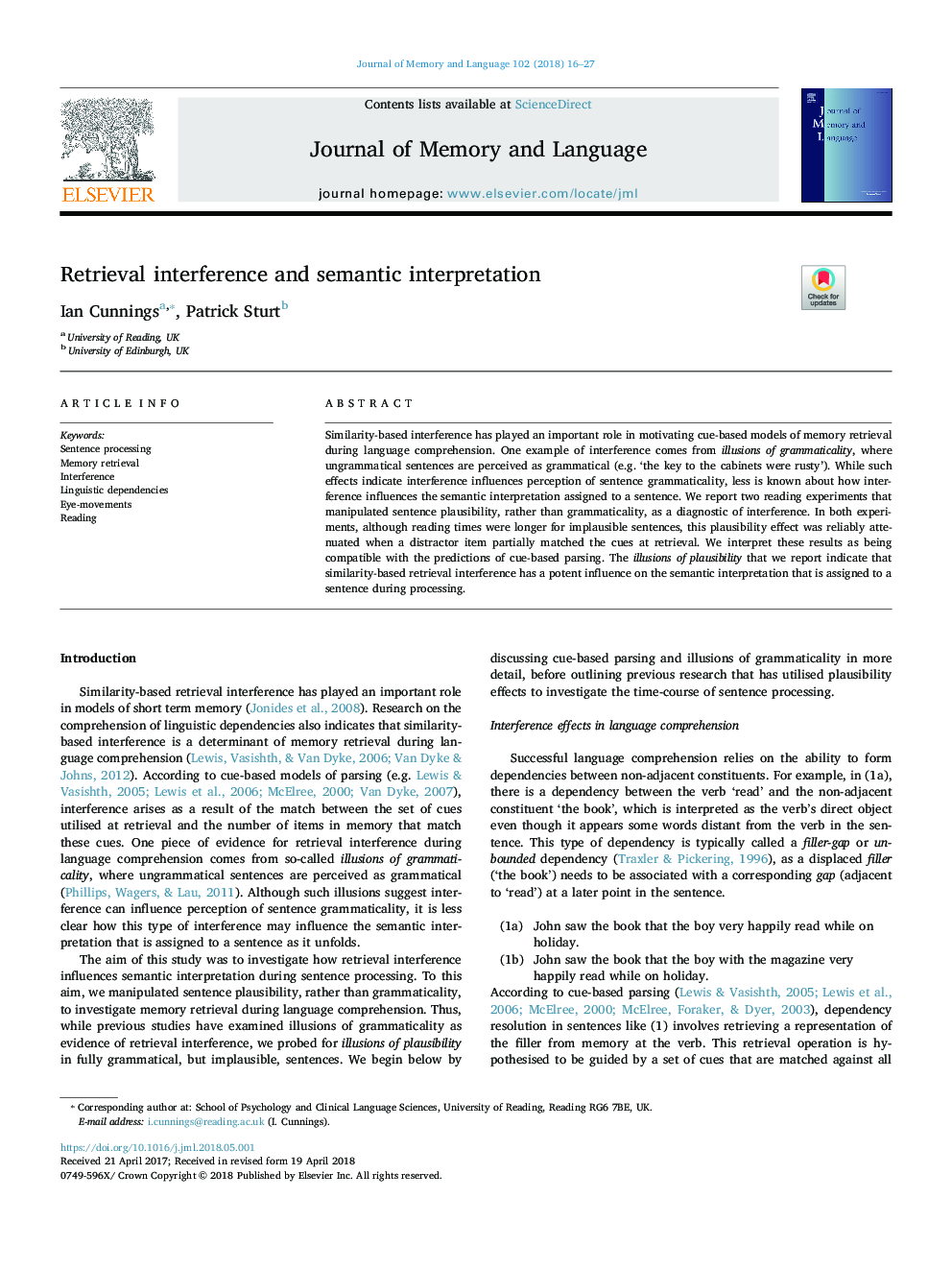| Article ID | Journal | Published Year | Pages | File Type |
|---|---|---|---|---|
| 7296763 | Journal of Memory and Language | 2018 | 12 Pages |
Abstract
Similarity-based interference has played an important role in motivating cue-based models of memory retrieval during language comprehension. One example of interference comes from illusions of grammaticality, where ungrammatical sentences are perceived as grammatical (e.g. 'the key to the cabinets were rusty'). While such effects indicate interference influences perception of sentence grammaticality, less is known about how interference influences the semantic interpretation assigned to a sentence. We report two reading experiments that manipulated sentence plausibility, rather than grammaticality, as a diagnostic of interference. In both experiments, although reading times were longer for implausible sentences, this plausibility effect was reliably attenuated when a distractor item partially matched the cues at retrieval. We interpret these results as being compatible with the predictions of cue-based parsing. The illusions of plausibility that we report indicate that similarity-based retrieval interference has a potent influence on the semantic interpretation that is assigned to a sentence during processing.
Related Topics
Life Sciences
Neuroscience
Cognitive Neuroscience
Authors
Ian Cunnings, Patrick Sturt,
